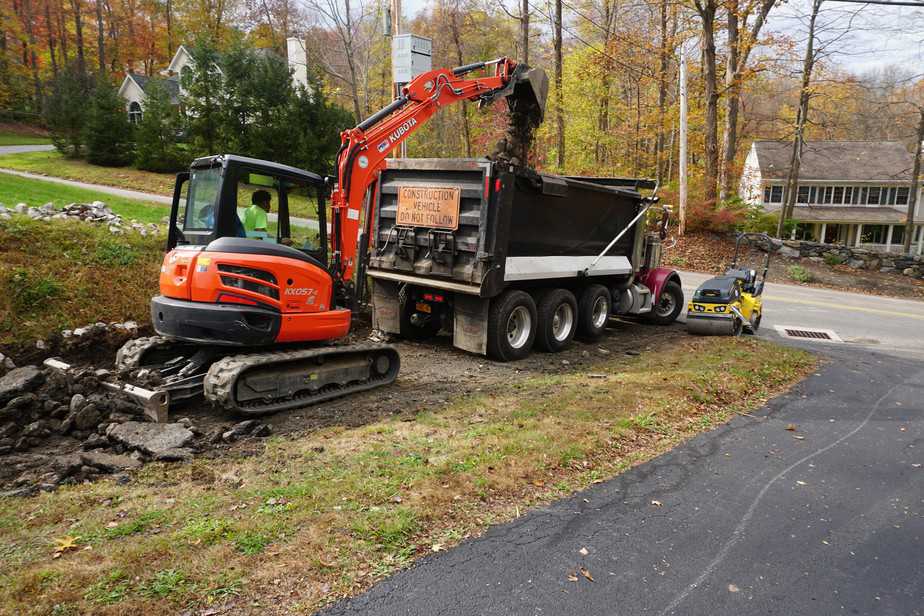Residential Excavating Ohio - Specialized Excavation for Ohio Residences
Residential Excavating Ohio - Specialized Excavation for Ohio Residences
Blog Article
Comprehensive Excavation Techniques: Mastering the Principles for Success
The mindful preparation, specific implementation, and meticulous focus to information required in excavation projects require a detailed method that encompasses different essential facets. The true proficiency lies not simply in comprehending these basics however in effortlessly incorporating them to browse the complexities of excavation jobs with finesse.
Comprehending Excavation Task Planning

Successful excavation tasks are constructed on the foundation of careful and complete planning. The first stage of any kind of excavation task is the preparation phase, where important decisions are made that can considerably affect the result of the task. During this stage, it is necessary to gather all appropriate details concerning the website, including topographical surveys, dirt structure, and any kind of potential risks that might exist. Recognizing the project range, timeline, and spending plan restraints is critical for producing a comprehensive excavation plan that guarantees the task's success.
One trick aspect of excavation job planning is the advancement of a comprehensive timeline that lays out the sequence of due dates, tasks, and landmarks. This timeline functions as a roadmap for the project team, permitting them to track progress and make necessary adjustments to guarantee the project remains on timetable. Furthermore, a distinct budget that represents all costs, including tools leasing, labor prices, and materials, is crucial for staying clear of expense overruns and delays. By thoroughly taking into consideration all these factors throughout the preparation phase, excavation tasks can be implemented efficiently and properly, causing effective results.
Soil Analysis and Site Evaluation
Performing extensive soil analysis and site assessment is a vital action in the preparation phase of any kind of excavation job. Soil evaluation entails figuring out the make-up, framework, and properties of the soil at the excavation site. This info is crucial for comprehending the soil's bearing capability, dampness material, and potential for disintegration, which are key consider determining the excavation techniques and equipment required for the job.
Website assessment goes past soil evaluation and includes a broader evaluation of the total site problems. This evaluation consists of identifying any possible dangers, such as underground energies, environmental concerns, or unpredictable terrain, that might affect the excavation process. By thoroughly assessing the site, project supervisors can create reliable excavation strategies that focus on safety and security, efficiency, and environmental management.
Making use of sophisticated technologies like ground-penetrating radar, dirt sampling, and drone studies can boost the precision and effectiveness of dirt analysis and website evaluation. Spending time and sources in these initial steps can ultimately conserve time and protect against expensive hold-ups or issues during the excavation procedure.
Devices Option and Utilization
Effective excavation projects rely greatly on tactical tools selection and application to make sure optimal performance and productivity. Selecting the ideal devices for the job is important in optimizing performance and reducing downtime. Factors such as the kind of soil, deepness of excavation, and job range play a significant function in figuring out the most suitable tools for the task at hand.

Along with selecting the ideal devices, appropriate utilization is essential to task success. Operators has to be educated to take care of the tools safely and efficiently - lancaster trenching. Routine maintenance checks and timely fixings help prevent malfunctions and guarantee consistent efficiency throughout the task
Precaution and Regulations Conformity
In the world of excavation jobs, prioritizing safety and security steps and compliance with regulations is vital to making sure a legitimately audio and safe and secure operational setting. Precaution encompass a range of practices, including conducting thorough site assessments, applying proper signage and barriers, and giving sufficient security training for all workers associated with the excavation procedure. Adherence to policies, such as OSHA demands in the USA, guarantees that the excavation job visit the website meets the essential criteria to shield workers, onlookers, and the surrounding atmosphere.

Surveillance Progress and Adjusting Strategies
Just how can predict managers efficiently track the advancement More Bonuses of excavation tasks and adjust their approaches as necessary to enhance outcomes? Tracking progression is necessary for ensuring that excavation projects remain on track and satisfy due dates.

Final Thought
To conclude, understanding the basics of thorough excavation strategies is vital for the success of any type of project. By understanding task planning, examining dirt and site problems, selecting ideal tools, abiding by safety and security laws, and checking development, project supervisors can ensure a smooth and efficient excavation procedure. Implementing these techniques will lead to effective results and decrease prospective risks or setbacks during the excavation job.
The first stage of any excavation task is the planning phase, where crucial decisions are made that can get more considerably affect the result of the job. Recognizing the job scope, timeline, and budget plan constraints is crucial for producing a detailed excavation strategy that makes certain the project's success.
Exactly how can forecast supervisors properly track the innovation of excavation projects and adapt their strategies as necessary to maximize results? By carefully monitoring progress and being willing to adjust techniques, job supervisors can improve the overall success of excavation projects.
By comprehending task planning, examining soil and website problems, choosing proper equipment, conforming with security laws, and keeping an eye on development, job managers can ensure a efficient and smooth excavation process.
Report this page